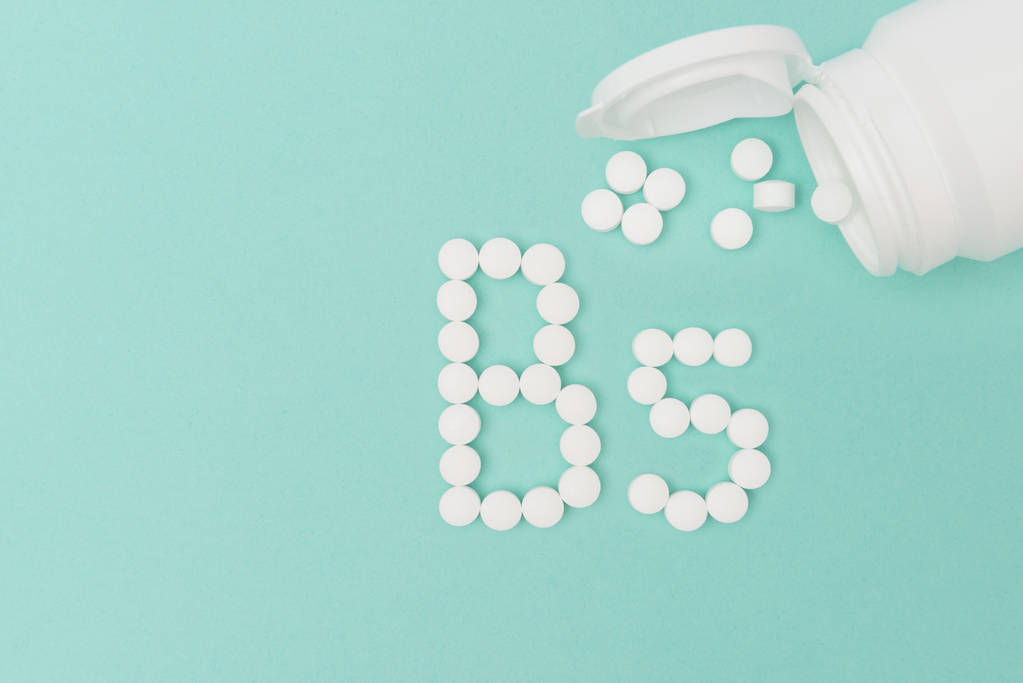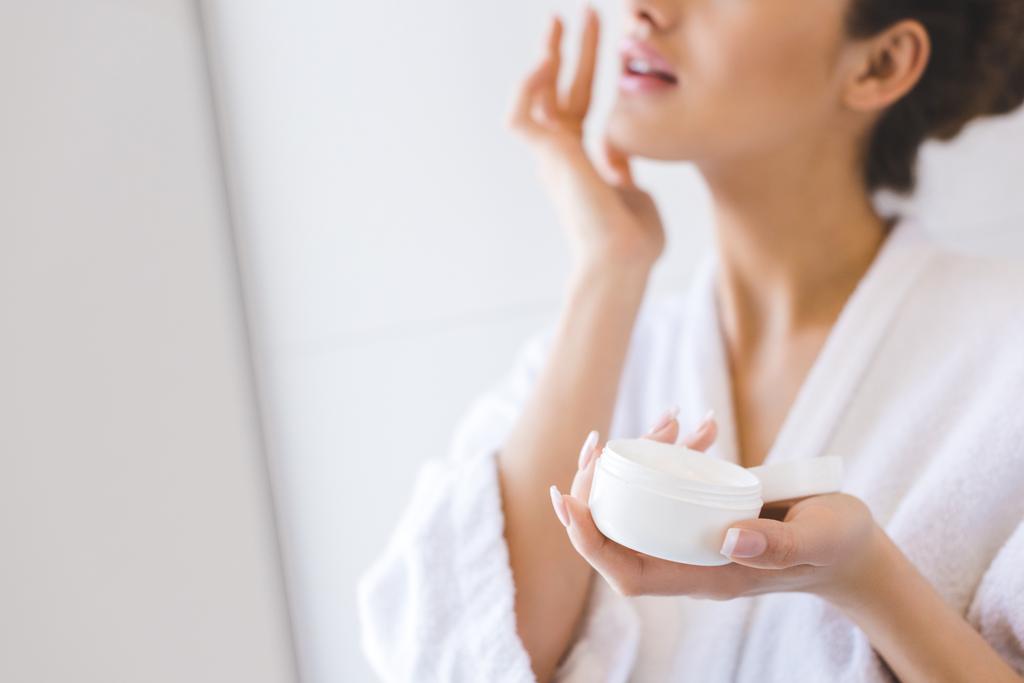Discover the incredible benefits of Vitamin B5 (Panthenol) for achieving and maintaining healthy skin.
The Benefits of Vitamin B5 (Panthenol) for Healthy Skin – A Comprehensive Guide
If you’re a skincare enthusiast like me, you’re probably always on the lookout for new ingredients that will give your skin a healthy, radiant glow. Well, have you heard about the amazing benefits of Vitamin B5, also known as Panthenol? This little gem is a true skin superhero, working wonders to nourish, hydrate, heal, and soothe your precious skin. In this comprehensive guide, we’ll dive deep into the lowdown on Panthenol and unlock its incredible benefits. So, get ready to pamper your skin with the vitamin it truly deserves!

The Lowdown on Panthenol
Before we delve into the juicy details of Panthenol’s benefits, let’s first understand the basics. Panthenol is derived from Vitamin B5, which is a water-soluble vitamin found in certain foods like eggs, whole grains, and mushrooms. When applied topically, Panthenol converts into pantothenic acid, which is essential for healthy skin. So, what makes Panthenol so special, you ask? Well, let’s find out!
Understanding the Basics of Panthenol
Panthenol is a humectant, which means it attracts and retains moisture from the environment, keeping your skin hydrated and plump. But that’s not all – Panthenol does so much more for your skin!
One of the key benefits of Panthenol is its ability to improve skin elasticity. When applied topically, it penetrates the outer layer of the skin, reaching the deeper layers where it stimulates the production of collagen and elastin. These proteins are responsible for maintaining the skin’s firmness and elasticity, giving it a youthful appearance.
In addition to its moisturizing and anti-aging properties, Panthenol also has soothing and healing effects on the skin. It helps to reduce redness, inflammation, and irritation, making it a great ingredient for those with sensitive or damaged skin. Whether you’re dealing with sunburn, eczema, or acne, Panthenol can provide relief and promote faster healing.
Furthermore, Panthenol acts as a barrier on the skin’s surface, protecting it from environmental stressors such as pollution and UV radiation. It forms a thin film that locks in moisture and shields the skin from harmful external factors, helping to maintain a healthy and radiant complexion.
But wait, there’s more! Panthenol also has nourishing properties that can benefit not only the skin but also the hair. When used in hair care products, it helps to improve the strength and flexibility of the hair strands, reducing breakage and split ends. It also adds shine and volume to the hair, making it look healthier and more vibrant.
Now that we’ve covered the fundamentals, let’s dive into the delightful benefits that Panthenol has in store for your skin.
Unlocking the Benefits of Panthenol
When it comes to skincare, finding the right ingredients can make all the difference. One ingredient that has been gaining popularity for its amazing benefits is Panthenol. This powerful compound not only provides a much-needed hydration boost but also plays a key role in wound recovery and has soothing anti-inflammatory properties.
Hydration Boost: How Panthenol Moisturizes Your Skin
Picture this: your skin is dry and dehydrated, longing for a burst of moisture. Enter Panthenol, the ultimate hydration hero! When applied topically, Panthenol penetrates deep into the skin, attracting moisture and locking it in. This keeps your skin moisturized and supple, say goodbye to dry, flaky patches!
But that’s not all, folks! Panthenol also helps to improve your skin’s natural barrier function, preventing water loss and ensuring your skin stays hydrated throughout the day. It’s like giving your skin a big, thirst-quenching drink!
Additionally, Panthenol has been found to have humectant properties, meaning it attracts and retains moisture from the environment. So not only does it provide an immediate hydration boost, but it also helps your skin maintain its moisture levels in the long run.
Healing Power: Panthenol’s Role in Wound Recovery
If you’ve ever had a pesky pimple or a nasty scratch, you know how important it is to promote speedy healing. Well, say hello to Panthenol, your skin’s very own cheerleader in the healing process! When applied topically, Panthenol stimulates cell regeneration, helping wounds to heal faster.
Not only does Panthenol aid in wound healing, but it also reduces redness and soothes irritation, making it perfect for those with sensitive or acne-prone skin. Talk about a multitasking skincare ingredient!
In fact, Panthenol is often used in products specifically formulated for post-procedure skincare. Its ability to accelerate the healing process and reduce inflammation makes it a go-to ingredient for dermatologists and skincare professionals.
Soothing Sensation: Panthenol’s Anti-inflammatory Properties
Life can sometimes throw unexpected curveballs at our skin, leaving it red, irritated, and inflamed. Luckily, Panthenol has got your back! Thanks to its anti-inflammatory properties, Panthenol works wonders to calm and soothe irritated skin.
Whether you’ve had a little too much sun, a reaction to a harsh product, or a case of itchy skin, Panthenol comes to the rescue, providing instant relief. It’s like a gentle, comforting hug for your troubled skin!
But how does Panthenol achieve this soothing sensation? Well, it has been shown to inhibit the production of pro-inflammatory molecules, such as cytokines, which are responsible for triggering inflammation. By reducing inflammation, Panthenol helps to alleviate redness, swelling, and discomfort.
Furthermore, Panthenol has been found to enhance the skin’s natural repair process by promoting the synthesis of proteins and lipids that are crucial for maintaining a healthy skin barrier. This not only helps to soothe existing irritation but also strengthens the skin’s defenses against future damage.
So the next time your skin is in need of some extra love and care, reach for a product enriched with Panthenol. Your skin will thank you!

Debunking the Safety Concerns of Panthenol
Now, some of you may be wondering if Panthenol is safe to use. Fear not, my fellow skincare enthusiasts, as Panthenol is not only safe but also offers a multitude of benefits for your skin. Let’s dive deeper into the world of Panthenol and explore its safety profile and remarkable properties.
Panthenol, also known as provitamin B5, is a water-soluble vitamin that is widely used in skincare products. It has been extensively studied and is considered generally safe for most skin types. In fact, it is well-tolerated and rarely causes any irritation or adverse reactions.
One of the reasons why Panthenol is so safe and gentle on the skin is its ability to attract and retain moisture. It acts as a humectant, helping to hydrate the skin and improve its barrier function. This means that Panthenol not only moisturizes your skin but also helps to prevent moisture loss, keeping it plump and supple.
Furthermore, Panthenol has soothing and anti-inflammatory properties, making it an excellent choice for those with sensitive or irritated skin. It can help calm redness, reduce inflammation, and promote the healing of damaged skin. So, if you’re dealing with any skin concerns like dryness, redness, or even minor wounds, Panthenol can come to the rescue.
However, as with any new skincare ingredient, it’s always a good idea to do a patch test before incorporating it into your routine, especially if you have sensitive skin. This way, you can ensure that Panthenol is your skin’s new BFF without any unwanted surprises.
But that’s not all! Panthenol has another impressive quality – it can improve the appearance of your hair. Yes, you read that right. Panthenol is not only beneficial for your skin but also for your locks. It can penetrate the hair shaft, providing hydration and nourishment from within. This results in smoother, shinier, and more manageable hair.
So, there you have it – the wonders of Panthenol, the skin superhero that your skin deserves! Whether you’re looking to hydrate, heal, or soothe your skin, Panthenol has got you covered. So, go ahead and incorporate this powerful ingredient into your skincare routine, and watch your skin transform into the glowing masterpiece it was meant to be. Remember, happy skin is healthy skin!






[…] layer of dead skin cells, sodium citrate promotes cell turnover, encouraging the growth of new, healthy skin cells. This process not only improves the texture of your skin but also helps to reduce the […]